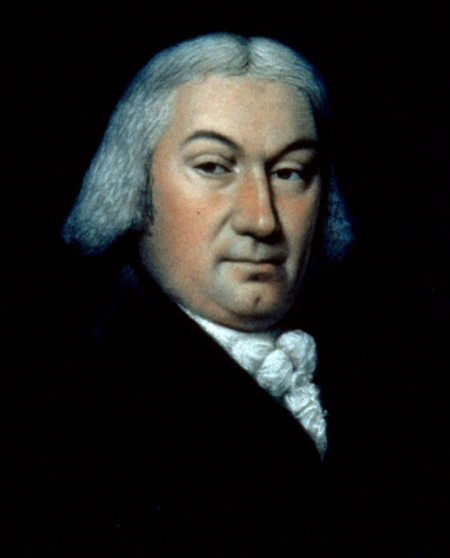In Washington City, President Thomas Jefferson writes the commission appointing Robert Livingston and James Monroe as minister plenipotentiaries—diplomatic agents ranking below ambassadors but with the same power and authority—to negotiate a cession of land in the lower Mississippi and eastward toward Florida.
Scion of the largest landholding family in New York, Livingston was baronial in appearance and in action. He moved away from the Federalist party and was appointed minister to France in 1801 by President Jefferson. Prior to Monroe’s arrival in Paris, he bombarded Napoleon’s court with papers arguing for an American presence on the lower Mississippi.
To all whom these presents shall concern,
Greeting:. . . . .
I have nominated, and by and with the advice and consent of the Senate, appointed them the said Robert R. Livingston to be Minister Plenopotentiary, and the said James Monroe to be Envoy Extraordinary and Minister Plenipotentiary, with full power and authority to them both jointly or to either of them separately in case of the death of the other, for and in the name of the United States to confer, treat and negotiate with any person or persons duly authorized by the Government of the said Republic, of and concerning the enlargement and more effectual security of the rights and interests of the United States in the River Mississippi and in the Territories Eastward thereof . . . .
Given under my Hand at the City of Washington, the Twelfth day of January in the year of our Lord one thousand Eight hundred and three, and of the Independence of the United States of America, the Twenty Seventh.
Th: Jefferson[1]Commission for James Monroe and Robert R. Livingston, 12 January 1803,” Founders Online, National Archives, founders.archives.gov/documents/Jefferson/01-39-02-0274. [Original source: The Papers … Continue reading
Notes
| ↑1 | Commission for James Monroe and Robert R. Livingston, 12 January 1803,” Founders Online, National Archives, founders.archives.gov/documents/Jefferson/01-39-02-0274. [Original source: The Papers of Thomas Jefferson, vol. 39, 13 November 1802–3 March 1803, ed. Barbara B. Oberg. Princeton: Princeton University Press, 2012, pp. 320–321.] accessed 15 May 2022. |
|---|
Experience the Lewis and Clark Trail
The Lewis and Clark Trail Experience—our sister site at lewisandclark.travel—connects the world to people and places on the Lewis and Clark Trail.
Discover More
- The Lewis and Clark Expedition: Day by Day by Gary E. Moulton (University of Nebraska Press, 2018). The story in prose, 14 May 1804–23 September 1806.
- The Lewis and Clark Journals: An American Epic of Discovery (abridged) by Gary E. Moulton (University of Nebraska Press, 2003). Selected journal excerpts, 14 May 1804–23 September 1806.
- The Lewis and Clark Journals. by Gary E. Moulton (University of Nebraska Press, 1983–2001). The complete story in 13 volumes.


